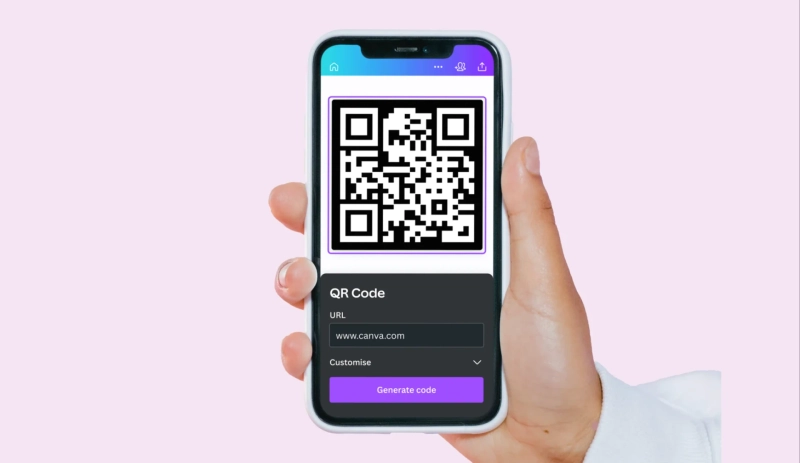In an era where digitalization is rapidly transforming the landscape of consumer interaction, QR (Quick Response) codes have emerged as a powerful tool for bridging the gap between the physical and digital worlds. Once relegated to the realms of inventory tracking and logistics, QR codes are now revolutionizing how businesses engage with consumers. Through the seamless integration of QR code generators into marketing strategies, businesses are reshaping consumer interaction in ways previously unimagined.
The Rise of QR Codes
QR codes, initially invented in 1994 by Denso Wave, a subsidiary of Toyota, were designed to track automotive parts during manufacturing. However, it wasn't until the proliferation of smartphones equipped with built-in cameras and QR code scanning capabilities that these cryptic patterns gained widespread utility. Today, QR codes are ubiquitous, found everywhere from product packaging to restaurant menus.
The Power of QR Generators
The advent of QR code generators has democratized their usage, empowering businesses of all sizes to leverage this technology to enhance consumer interaction. These generators enable businesses to effortlessly create custom QR codes tailored to their specific needs, whether it be directing consumers to a website, unlocking exclusive content, or facilitating contactless payments.
Enhancing Marketing Strategies
One of the primary ways QR generators are reshaping consumer interaction is through the enhancement of marketing strategies. Traditional advertising channels such as print media and billboards are limited in their ability to provide real-time engagement metrics. QR codes embedded within these mediums bridge this gap by seamlessly connecting offline advertisements to online content, thereby enabling businesses to track consumer interactions in real-time.
Moreover, QR codes offer a novel way to engage consumers through interactive experiences. By scanning a QR code, consumers can unlock special promotions, participate in contests, or gain access to immersive multimedia content. This not only fosters consumer engagement but also cultivates brand loyalty by offering personalized experiences tailored to individual preferences.
Transforming Retail Experiences
In the retail sector, QR generators are revolutionizing the shopping experience by blurring the lines between physical and digital commerce. Retailers can embed QR codes within product packaging, enabling consumers to access detailed product information, customer reviews, and complementary product recommendations with a simple scan.
Additionally, QR codes facilitate seamless transactions by enabling contactless payments. With the rise of mobile payment platforms, consumers can now complete transactions swiftly and securely by scanning a QR code displayed at the point of sale, eliminating the need for physical cash or cards.
Empowering Consumer Education
QR generators are also playing a vital role in empowering consumer education across various industries. From educational institutions to museums and art galleries, QR codes are being utilized to provide supplementary information and enrich the learning experience. For instance, museums can embed QR codes next to exhibits, allowing visitors to access detailed descriptions, historical context, and multimedia content, thereby enhancing their understanding and appreciation of the exhibits.
Similarly, educational institutions can leverage QR codes to distribute course materials, provide access to online resources, and facilitate interactive learning experiences. By embracing QR technology, educators can engage digital-native students in innovative ways, catering to diverse learning styles and preferences.
Overcoming Challenges
Despite their myriad benefits, QR codes still face challenges that must be addressed to realize their full potential. Chief among these is consumer awareness and adoption. While QR codes are increasingly prevalent, there remains a segment of the population that is unfamiliar with their functionality or hesitant to use them due to security concerns.
To overcome these challenges, businesses must prioritize education and awareness campaigns to familiarize consumers with QR technology and emphasize its benefits. Additionally, ensuring the security and integrity of QR code systems is paramount to building trust among consumers and mitigating potential risks associated with malicious QR codes.
Looking Ahead
As technology continues to evolve, QR generators will continue to play a pivotal role in reshaping consumer interaction. From marketing and retail to education and beyond, the versatility and accessibility of QR codes make them a powerful tool for businesses seeking to engage consumers in innovative and meaningful ways.
By leveraging QR technology to bridge the gap between the physical and digital worlds, businesses can create immersive experiences, foster deeper connections with consumers, and drive growth in an increasingly competitive marketplace. As we look to the future, the potential applications of QR generators are limited only by our imagination, promising exciting opportunities for businesses and consumers alike.


